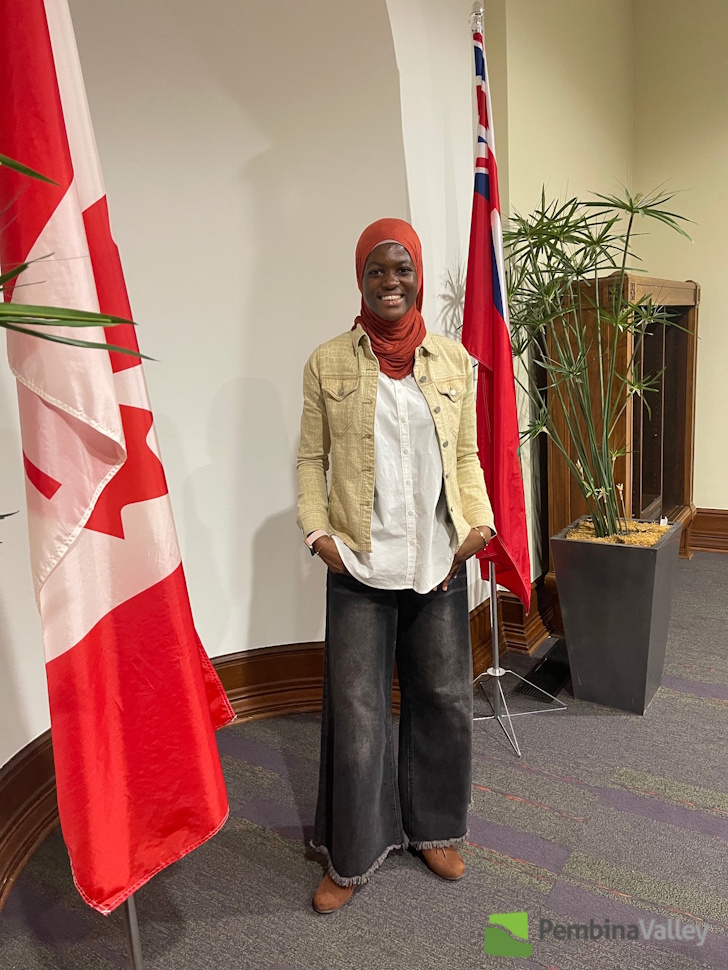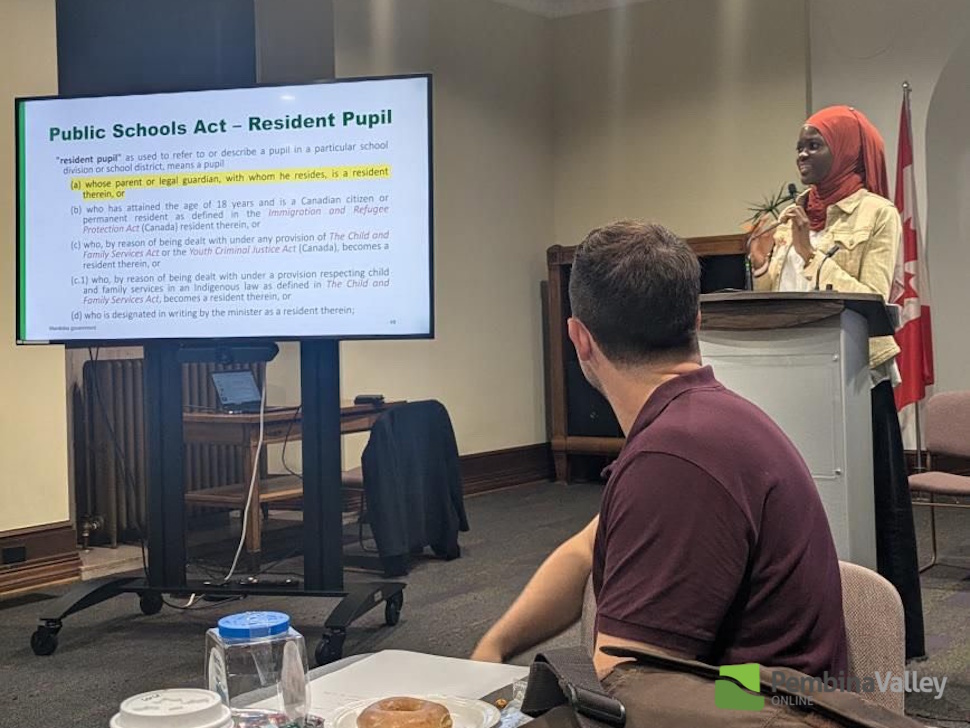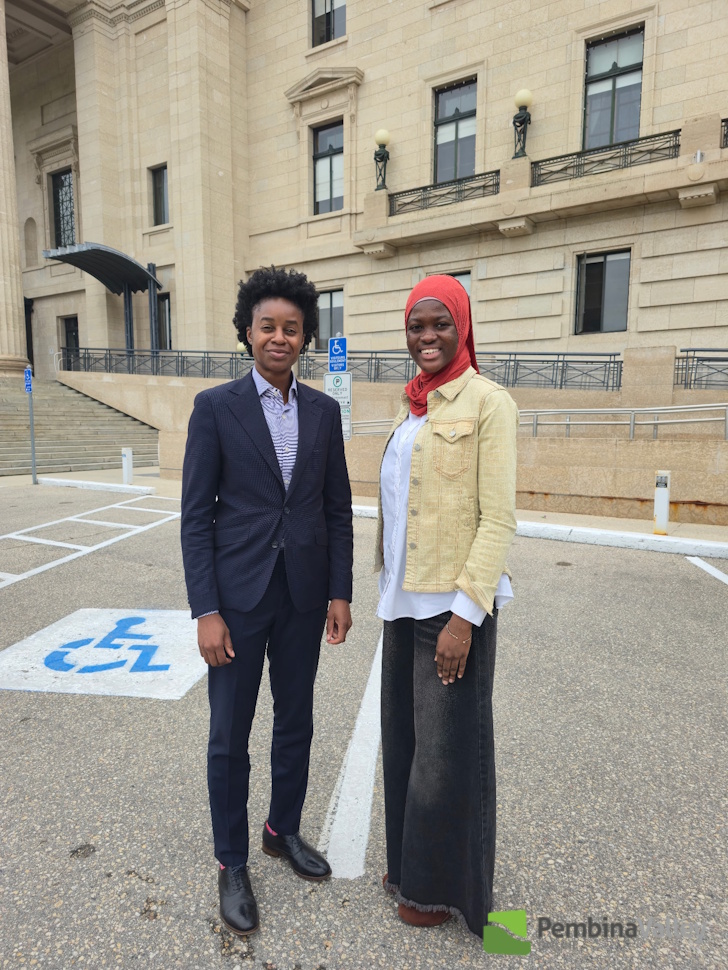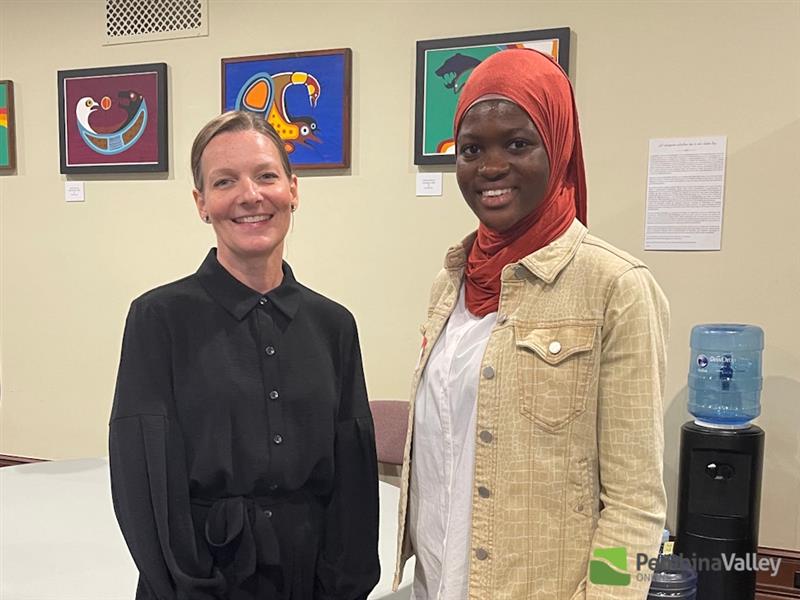Each year, 30 students from across the province are selected to form Manitoba’s Student Advisory Council.
According to its website, the purpose of the council, which consists of individuals who represent “diverse interests, identities, [and] backgrounds,” is to hear the perspectives of young people in the province who are directly impacted by decisions concerning education.
It also helps the students take an active role in their own future.
For the 2025-2026 season, Aqeelah Daibu of Morden Collegiate is representing the Pembina Valley region as a part of the critical group of students.
A special meeting at the Legislative Building
Daibu said that she applied to be a part of the Student Advisory Council in March.

On August 18th, the group gathered in Winnipeg at the Manitoba Legislative Building for its first meeting, at which the outgoing members gave a report to Minister of Education Tracy Schmidt and incoming members were introduced to her.
For Daibu, being a part of the council comes down to “making sure that certain voices are heard.”
“A lot of times, decisions are made about education without really hearing from the people in the classrooms every day,” she said.
Relevant topics
In addition to reports and introductions, the meeting also covered a variety of topics relevant to schools in the province, such as accessibility, school shopping, diversity, inclusion, mental health, AI (Artificial Intelligence), and the introduction of digital literacy to the Manitoba curriculum.
Digital literacy was especially intriguing to Daibu — she said the topic “really impacted” her as a student who is always interested in computers.
Other stories:
- ‘I'm a Welcomer’: Selfie campaign to highlight Pembina Valley hospitality
- ‘Dear Fire Chief,’: Winkler Daycare Centre kids meet their local heroes
Daibu was also engaged in the question & answer session with the Minister of Education, during which she asked about the province’s plans for equipping students for the direction the world is headed.
“Usually in schools, we're talking about [not using] AI to cheat and stuff, but students especially should know how to use AI to make their lives better,” she said. “We're not just talking about using it for homework help, or for tests, we're actually talking about how to use AI to prepare yourself for the future. Having that in the curriculum would go a long, long way.”

The high school student was pleased to hear about the province’s plans to redefine its framework concerning digital literacy in a world with an increasing presence of AI.
A meaningful introduction
Daibu also looks fondly on the experience of meeting Manitoba Deputy Premier and Minister of Health, Seniors and Long-Term Care Uzoma Asagwara, who offered her memorable advice.
“[Asagwara] ... talked about how important it is for youth to use their voices and to keep showing up, and to keep engaging in this kind of thing,” she said. “Being [at] home and complaining about how the whole system is won't take you anywhere, so actually being there at the table and contributing [is] important.”

In the end, Daibu’s experience with the Student Advisory Council has been an impactful one.
“[It was] just connecting with people, learning, sharing my ideas. It's an amazing experience to be part of that because the whole group is so diverse,” she said.
With files from Robyn Wiebe
